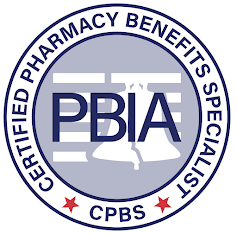Prescription Rebate Guarantees and other notes from around the interweb:
- Prescription Rebate Guarantees: Employer Insights. This study sheds light on employers’ perspectives of rebate guarantees, dependency upon rebate dollars, and the role that pharmaceutical rebates or employer benefits consultants play in their pharmacy benefits manager (PBM) selection. The common occurrence of rebate guarantees in the study sample raises concern given that rebate guarantees may obscure employer visibility into the actual net prices of drugs, resulting in formulary inclusion of higher-cost products and higher overall total pharmacy costs. Employers should consider the role of employer benefits consultants in presenting drug contracting options and, ultimately, PBM selection. It is important to keep the employer perspective in mind when considering reforms to the current rebate-centric incentives of pharmacy benefit management.
- Delaware paid over $12 million more on weight loss drugs than expected, trend increases to follow. The body in charge of state employee health insurance plans — the State Employee Benefits Committee (SEBC) — is now preparing to vote on new trend increases after ending the year in a $10 million deficit. The Office of Management and Budget transferred the state’s GHIP $7.3 million to help cover the plan’s fiscal year 24 deficit, but as the new fiscal year begins, the SEBC is leaning towards being less conservative when deciding on new trend increases in medical and pharmacy claims to avoid repeating this year’s shortfalls. The SEBC already committed to raising state employee health insurance premiums by 27% for FY25, which started July 1, 2024. The FY24 deficit is largely due to underestimating the rising cost of prescription drugs, the utilization of bundled surgery rates and the growing popularity of weight loss drugs known as GLP-1s. The state’s pharmacy benefit manager projected the state would pay $2 million for GLP-1s in FY24. By the end of the fiscal year in June, the state had paid over $14 million for GLP-1s for weight loss purposes and close to $24.7 million for diabetes treatment.
- FTC Releases Interim Staff Report on Prescription Drug Middlemen. The Federal Trade Commission published an interim report on the prescription drug middleman industry that underscores the impact pharmacy benefit managers (PBMs) have on the accessibility and affordability of prescription drugs. The interim staff report, which is part of an ongoing inquiry launched in 2022 by the FTC, details how increasing vertical integration and concentration has enabled the six largest PBMs to manage nearly 95 percent of all prescriptions filled in the United States. This vertically integrated and concentrated market structure has allowed PBMs to profit at the expense of patients and independent pharmacists, the report details. “The FTC’s interim report lays out how dominant pharmacy benefit managers can hike the cost of drugs—including overcharging patients for cancer drugs,” said FTC Chair Lina M. Khan. “The report also details how PBMs can squeeze independent pharmacies that many Americans—especially those in rural communities—depend on for essential care. The FTC will continue to use all our tools and authorities to scrutinize dominant players across healthcare markets and ensure that Americans can access affordable healthcare.”
- The Leap to Self-Insurance. Health insurance, like any insurance, is about pooling risk and paying premiums to create some financial cushion against costly events. For years, though, many large employers — what constitutes large means varies, but it’s typically 500 or more employees — have self-insured, meaning they have taken on the responsibility of setting funds aside to pay healthcare claims instead of a health insurer. In other words, they act as their own insurer, although they often hire a health insurer as a third-party administrator (TPA) to process claims and to take advantage of that insurer’s provider networks. Under the Employee Retirement Income Security Act of 1974 (ERISA), companies that self-insure are exempt from state health insurance mandates. ERISA exemption means those large employers can offer the same benefit package to their far-flung workforces working and living in different states and very likely save money by not covering some of the state-level health insurance benefits.
